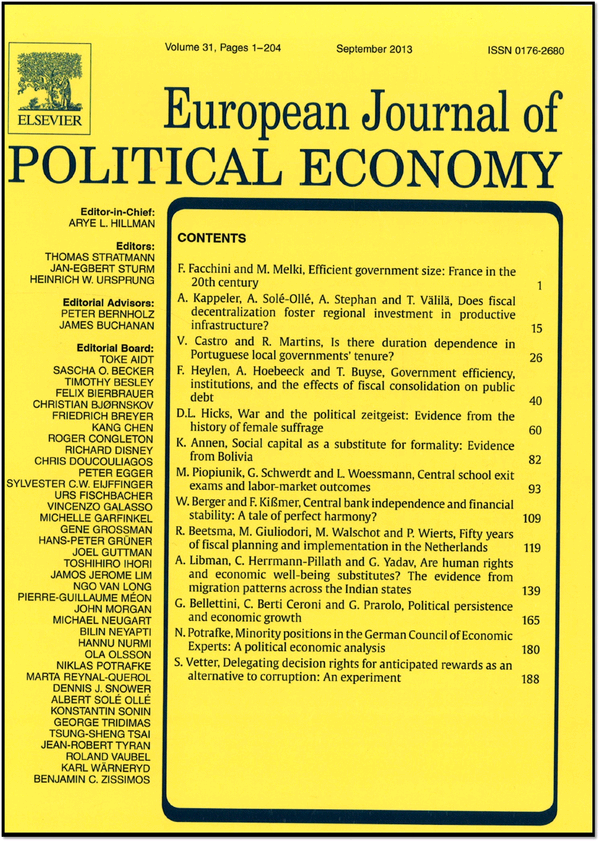
The Impact of Preferences on Early Warning Systems - The Case of the European Commission's Scoreboard
The European Commission’s Scoreboard of Macroeconomic Imbalances is a rare case of a publicly released early warning system. It allows the preferences of the politicians involved to be analysed with regard to the two potential errors of an early warning system – missing a crisis and issuing a false alarm. These preferences might differ with the institutional setting. Such an analysis is done for the first time in this article for early warning systems in general by using a standard signals approach, including a preference-based optimisation approach, to set thresholds. It is shown that, in general, the thresholds of the Commission’s Scoreboard are set low (resulting in more alarm signals), as compared to a neutral stand. Based on political economy considerations the result could have been expected.




